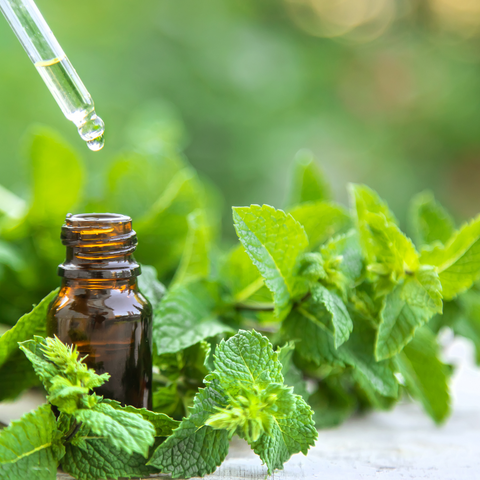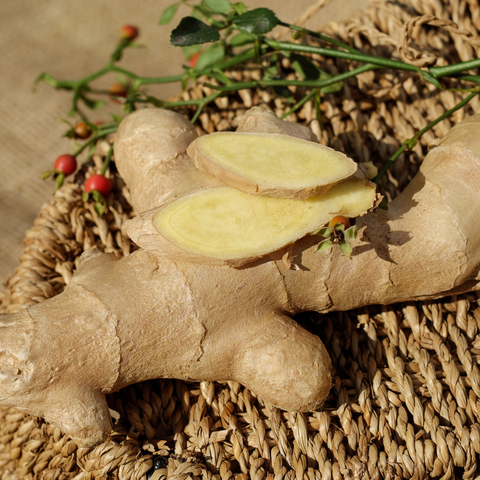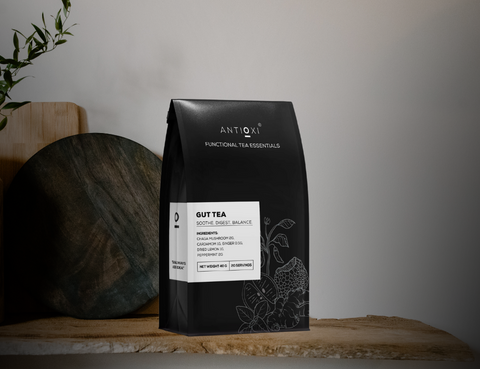In an era marked by the prevalence of digestive disorders and the growing recognition of the gut-brain axis, the quest for digestive harmony has never been more pertinent. Amidst the hustle and bustle of modern life, our gastrointestinal health often takes a backseat, leading to an array of discomforts ranging from occasional bloating to chronic conditions like irritable bowel syndrome (IBS) and inflammatory bowel disease (IBD).
Yet, emerging research continues to underscore the profound connection between gut health and overall well-being. The intricate interplay between the gut microbiome, immune system, and nervous system, known as the gut-brain axis, highlights the far-reaching implications of digestive health beyond mere digestion and nutrient absorption. From mood regulation and cognitive function to immune response and systemic inflammation, the health of our gut profoundly influences every aspect of our physiology and psychology.
Against this backdrop, the search for natural remedies that can restore balance to the gut microbiome and alleviate gastrointestinal distress has intensified. Enter Gut Health Shroom Tea – an ancient elixir with a rich tradition of use in traditional Siberian and East Asian medicine, now gaining recognition for its potential to support digestive wellness in the modern world.
Chaga Mushroom: The Immunomodulatory Powerhouse

Chaga Mushroom, revered in traditional Siberian and East Asian medicine for centuries, emerges as a true marvel of nature in contemporary scientific scrutiny. This fungus, scientifically known as Inonotus obliquus, thrives in cold climates and forms symbiotic relationships with birch trees, from which it draws essential nutrients and bioactive compounds.
At the heart of Chaga's therapeutic potency lies its rich array of bioactive constituents, including beta-glucans, triterpenes (such as betulinic acid), and melanin pigments. These compounds act synergistically to modulate immune function, bolstering the body's defences against pathogens and malignancies.
Beta-glucans, soluble fibers abundant in Chaga, stimulate immune cells like macrophages, natural killer cells, and T lymphocytes, enhancing their activity and promoting immune surveillance. Moreover, these compounds exhibit potent antioxidant activity, scavenging free radicals and mitigating oxidative stress, which can compromise immune function and exacerbate inflammatory conditions.
Triterpenes, particularly betulinic acid, contribute to Chaga's anti-inflammatory properties by inhibiting pro-inflammatory cytokines like tumour necrosis factor-alpha (TNF-alpha) and interleukins (IL-1, IL-6). This anti-inflammatory action extends to the gastrointestinal tract, where Chaga alleviates symptoms of inflammatory bowel diseases (IBD) like Crohn's disease and ulcerative colitis.
Melanin pigments, responsible for Chaga's distinctive dark hue, possess antioxidant and radioprotective properties, shielding cellular components from DNA damage induced by oxidative stress and ionising radiation. This protective effect extends to the gut mucosa, where Chaga helps maintain barrier integrity and mitigate inflammation-induced tissue injury.
In summary, Chaga Mushroom stands as a testament to the symbiotic relationship between humans and nature, offering profound immunomodulatory and antioxidant benefits that fortify gut health and resilience.
Learn more about the benefits of Chaga here.
Peppermint: Cooling the Flames of Dyspepsia

Peppermint, a hybrid of watermint (Mentha aquatica) and spearmint (Mentha spicata), is renowned for its distinct aroma and flavour, as well as its therapeutic properties rooted in centuries of traditional use.
Central to peppermint's therapeutic efficacy is its high content of menthol, a monoterpene alcohol with remarkable spasmolytic and analgesic properties. Menthol acts as a calcium channel blocker, inhibiting the influx of calcium ions into smooth muscle cells and thereby reducing muscle contractions and spasms.
In the context of gastrointestinal health, peppermint's spasmolytic action exerts a profound effect on the smooth muscles of the digestive tract, particularly the esophagus, stomach, and colon. This alleviates symptoms of dyspepsia, including abdominal pain, bloating, and flatulence, by relaxing gastrointestinal smooth muscles and promoting intestinal motility.
Peppermint harbours antimicrobial properties attributed to its essential oil components, including menthol, menthone, and limonene. These compounds exhibit broad-spectrum antimicrobial activity against pathogenic bacteria, fungi, and protozoa, including Escherichia coli, Salmonella spp., Candida albicans, and Giardia lamblia.
By inhibiting the growth and proliferation of pathogenic microorganisms, peppermint helps maintain microbial balance in the gut, thereby preserving intestinal barrier function and immune homeostasis. Additionally, peppermint's antimicrobial activity extends to the oral cavity, where it inhibits the growth of oral pathogens implicated in periodontal disease and halitosis.
In conclusion, peppermint emerges as a versatile botanical ally in the quest for digestive harmony, offering spasmolytic, analgesic, and antimicrobial benefits that soothe gastrointestinal distress and promote gut health. Whether enjoyed as a tea, essential oil, or dietary supplement, peppermint embodies nature's wisdom in nurturing digestive well-being.
Cardamom: Aromatic Ally for Digestive Harmony

Cardamom, often referred to as the "Queen of Spices," occupies a revered position in culinary traditions and herbal medicine systems worldwide. This aromatic spice, native to the Indian subcontinent, boasts a complex flavour profile characterised by citrusy, floral, and spicy notes, as well as a rich phytochemical composition with myriad health benefits.
Central to cardamom's therapeutic efficacy are its volatile oils, primarily composed of terpenes such as cineole, terpinyl acetate, and limonene, along with flavonoids, tannins, and other polyphenolic compounds. These bioactive constituents exert a diverse array of pharmacological effects, including digestive stimulation, antioxidant activity, and antimicrobial action.
Cardamom's digestive benefits stem from its ability to stimulate the secretion of digestive enzymes, including amylase, lipase, and protease, which facilitate the breakdown and assimilation of dietary macronutrients. This promotes efficient digestion and nutrient absorption, thereby reducing the risk of gastrointestinal discomfort and malabsorption syndromes.
Cardamom also possesses carminative properties, meaning it can alleviate symptoms of flatulence, bloating, and abdominal cramping by promoting the expulsion of intestinal gas and reducing gastrointestinal spasms. This makes cardamom an invaluable remedy for individuals suffering from irritable bowel syndrome (IBS) and functional dyspepsia.
In addition to its digestive benefits, cardamom exhibits potent antioxidant activity attributed to its polyphenolic compounds, including flavonoids like quercetin and kaempferol. These antioxidants scavenge free radicals and neutralise reactive oxygen species (ROS), thereby protecting cellular components from oxidative damage and mitigating inflammation.
Moreover, cardamom harbours antimicrobial properties, inhibiting the growth and proliferation of pathogenic bacteria like Helicobacter pylori, a major causative agent of gastric ulcers and gastritis. By maintaining microbial balance in the gut, cardamom promotes gastrointestinal health and supports immune function.
In summary, cardamom emerges as a versatile botanical remedy for digestive harmony, offering aromatic, digestive, antioxidant, and antimicrobial benefits that promote gut health and well-being. Whether used in culinary preparations, herbal teas, or dietary supplements, cardamom embodies nature's wisdom in nurturing digestive resilience and vitality.
Ginger: Nature's Digestive Tonic and Anti-inflammatory Agent

Ginger, revered in traditional medicine systems for millennia, stands as a testament to the therapeutic potential of botanical remedies in promoting digestive health and overall well-being. This rhizomatous plant, belonging to the Zingiberaceae family, boasts a rich phytochemical profile comprising gingerols, shogaols, paradols, and zingerone, among other bioactive compounds.
At the heart of ginger's therapeutic efficacy lies its high content of gingerols, pungent phenolic compounds with potent anti-inflammatory and antioxidant properties. Gingerols inhibit the activity of pro-inflammatory enzymes like cyclooxygenase (COX) and lipoxygenase (LOX), thereby mitigating inflammation and oxidative stress in the gastrointestinal tract.
In the context of digestive health, ginger exerts a multifaceted action that addresses various facets of gastrointestinal function, including gastric motility, gastric emptying, and intestinal transit. Gingerols stimulate the secretion of digestive enzymes like amylase and lipase, promoting the breakdown and absorption of dietary macronutrients.
Ginger accelerates gastric emptying and gastrointestinal transit, preventing stagnation and promoting regularity in bowel movements. This prokinetic effect alleviates symptoms of dyspepsia, including bloating, indigestion, and abdominal discomfort, by enhancing gastrointestinal motility and reducing transit time.
Additionally, ginger harbours antiemetic properties, meaning it can alleviate nausea and vomiting associated with motion sickness, pregnancy, chemotherapy, and postoperative recovery. This antiemetic action is attributed to gingerols and related compounds, which modulate neurotransmitter signalling in the central nervous system and gastrointestinal tract.
Further demonstrating its antimicrobial activity against pathogenic bacteria and fungi, including Helicobacter pylori, Candida albicans, and Staphylococcus aureus. By inhibiting the growth and proliferation of these microorganisms, ginger helps maintain microbial balance in the gut and prevents dysbiosis-related gastrointestinal disorders.
In summary, ginger emerges as a versatile botanical ally in the pursuit of digestive harmony, offering anti-inflammatory, prokinetic, antiemetic, and antimicrobial benefits that promote gut health and resilience. Whether consumed as fresh ginger root, powdered spice, or dietary supplement, ginger embodies nature's wisdom in nurturing digestive well-being and vitality.
Dried Lemon: Citrus Zest Infused with Antioxidant Vigor

Dried lemon, the preserved essence of Citrus limon, imparts a burst of tangy flavour and a wealth of therapeutic benefits to culinary creations and herbal remedies alike. Beyond its culinary allure, dried lemon harbours a treasure trove of bioactive compounds, including vitamin C (ascorbic acid), flavonoids, limonoids, and citric acid, each contributing to its antioxidant potency and health-promoting properties.
Vitamin C stands as the crown jewel of dried lemon's nutritional profile, renowned for its powerful antioxidant activity and indispensable role in immune function, collagen synthesis, and wound healing. As a potent water-soluble antioxidant, vitamin C scavenges free radicals and neutralises reactive oxygen species (ROS), protecting cellular components from oxidative damage and mitigating inflammation.
Vitamin C also regenerates other antioxidants like vitamin E, glutathione, and coenzyme Q10, enhancing their efficacy in combating oxidative stress and bolstering cellular defences against environmental toxins and metabolic byproducts. This synergistic interplay between antioxidants fortifies the body's resilience to oxidative insults and promotes overall well-being.
In addition to its antioxidant prowess, dried lemon contains flavonoids, polyphenolic compounds with diverse pharmacological effects, including anti-inflammatory, antimicrobial, and cardioprotective properties. Flavonoids like hesperidin and naringin inhibit pro-inflammatory enzymes like cyclooxygenase (COX) and lipoxygenase (LOX), thereby mitigating inflammation and reducing the risk of chronic diseases linked to oxidative stress.
Not forgetting limonoids, unique phytochemicals found in citrus fruits like lemons,that exhibit anticancer properties by inhibiting the growth and proliferation of cancer cells and promoting apoptosis (programmed cell death) in malignant tissues. This anticancer activity extends to the gastrointestinal tract, where limonoids help prevent the initiation and progression of colorectal cancer and other digestive malignancies.
The abundance of citric acid found in dried lemon, serves as a natural preservative and flavour enhancer in culinary applications while exerting beneficial effects on digestive health. Citric acid stimulates gastric acid secretion, optimising digestive processes and enhancing nutrient absorption in the small intestine.
In summary, dried lemon emerges as a nutritional powerhouse and botanical ally in the quest for digestive harmony, offering antioxidant, anti-inflammatory, antimicrobial, and anticancer benefits that promote gut health and overall well-being. Whether used as a zesty seasoning, herbal infusion, or dietary supplement, dried lemon embodies nature's wisdom in nurturing digestive resilience and vitality.
Synergistic Interplay and Complementary Benefits
Individually, each ingredient in our Functional Gut Health Mushroom Tea exhibits remarkable therapeutic properties that contribute to gut health and function. However, it is their synergistic interplay and complementary benefits that truly elevate this herbal elixir to a potent tonic for digestive well-being.
Chaga Mushroom's immunomodulatory and antioxidant properties synergize with peppermint's spasmolytic and antimicrobial actions, fortifying gut defences and preserving microbial equilibrium. Cardamom's digestive stimulant effects harmonise with ginger's anti-inflammatory and prokinetic properties, fostering gastrointestinal motility and ameliorating digestive discomfort. Dried lemon's antioxidant vigour complements the ensemble, augmenting cellular resilience and fortifying the gut against oxidative insults.
Collectively, these ingredients form a holistic concoction that nurtures and rejuvenates the gut from within, promoting a balanced microbiome, alleviating gastrointestinal distress, and fortifying immune defences. By embracing the wisdom of nature and harnessing the therapeutic potential of botanical remedies, we embark on a journey toward digestive harmony, where inflammation subsides, discomfort dissipates, and microbial balance prevails.
Conclusion
In conclusion, our Gut Health Shroom Tea stands as a testament to the symbiotic relationship between humans and nature, offering a potent blend of botanical remedies that nurture and nourish the gut, promoting resilience and vitality with each sip. So, indulge in this therapeutic brew and savour the transformative power of nature as it revitalises and rejuvenates your digestive system, one cup at a time.

Find out more here

